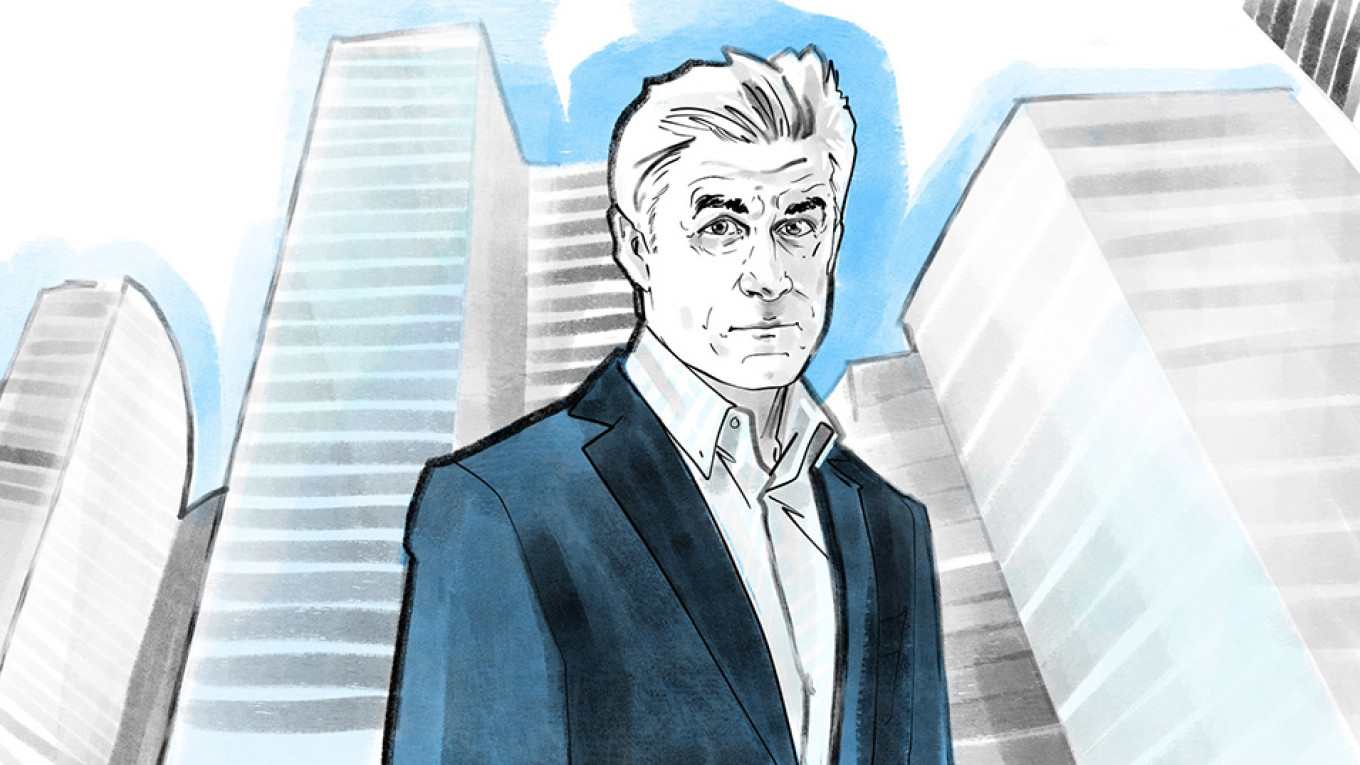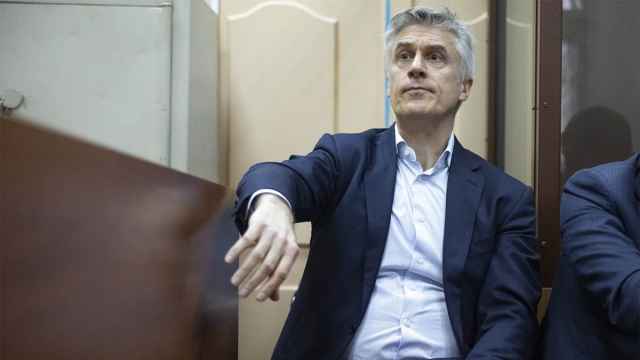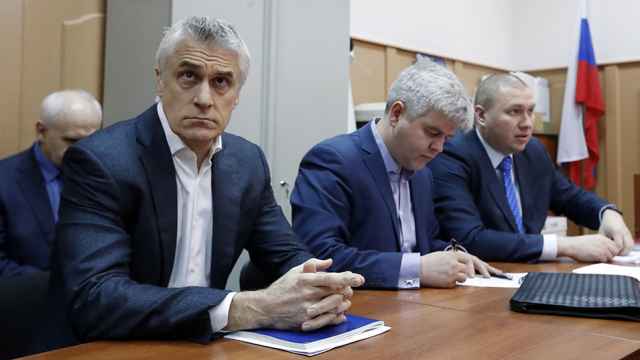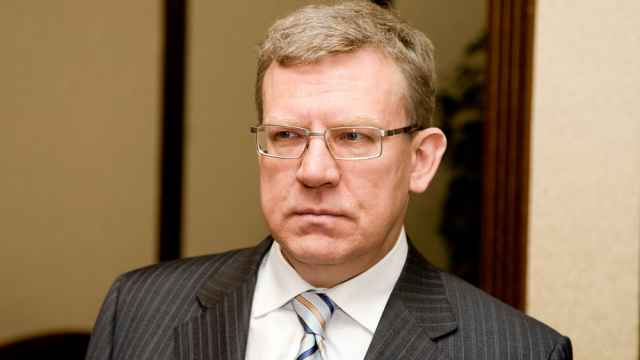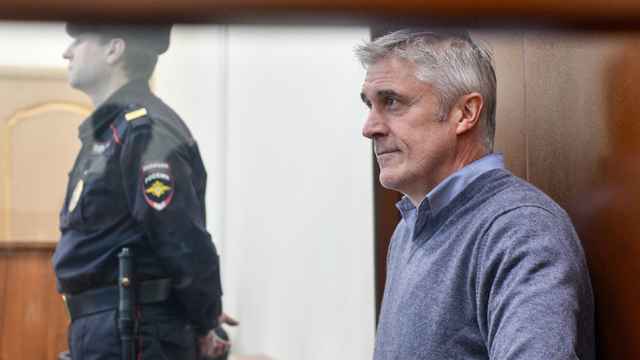It was a stark departure from past policy objectives. Addressing a crowd of government officials on Wednesday, President Vladimir Putin delivered a state of the nation speech more inward-focused than ever before. Domestic issues — the economy above all — took precedence; Ukraine didn’t even receive a mention.
Outlining a litany of measures to help Russia increase economic growth to 3 percent by 2021, Putin likewise stressed, not for the first time, that businessmen should not face criminal prosecution in business disputes. “Good-faith business shouldn’t feel threatened by the law or constantly feel the risk of criminal or even administrative punishment,” he said.
For Michael Calvey, who was sitting in a Moscow prison on fraud charges, it must have been an odd thing to hear. On Thursday, the U.S. private equity investor was indicted along with four top managers of his firm Baring Vostok for defrauding Vostochny Bank, a bank focused on Russia’s Far East. He now faces up to 10 years in prison.
Calvey, 51, has denied the fraud allegations in court, attributing the charges to a dispute with two of the bank’s minority shareholders. His arrest came less than a week after one, Sherzod Yusupov, filed a complaint with the Federal Security Service (FSB). This week, Putin’s business ombudsman Boris Titov wrote in the Vedomosti business daily that the charges looked “dubious,” and argued that the case should have been heard in civil, not criminal, court.
In a country where high-profile arrests are not uncommon — no one has forgotten the jailings of Mikhail Khodorkovsky, Sergei Magnitsky, or former Economic Minister Alexei Ulyukayev more recently — Calvey’s has still managed to shock. Although an American citizen, he played a substantive role in helping lift Russia’s economy out of the doldrums of the post-Soviet period.

“[Calvey] invested in a lot of fast-growing Russian companies, which contributed to Russia’s GDP,” says Alexander Lupachev, director of Russia Partners Management. “He helped create jobs and his fund paid a big chunk of taxes that went into the state budget.”
Calvey’s arrest seems to say: Look how we will treat even those who have contributed significantly to the Russian economy.
“Michael made a lot of money for Russian entrepreneurs over the years,” says Gene Moldavsky, the former head of corporate finance at Alfa Bank. “Hence the irony in his imprisonment, which puts a definitive stamp on the whole investment climate in Russia.”
Economic ballast
Calvey arrived in Russia several years after the fall of the Soviet Union, having previously worked for the European Bank of Reconstruction and Development and the Salomon Brothers. He quickly made a name for himself.
“When I met him in the early 2000s, he was already quite famous,” says Boris Krasnovsky, the CEO of ESN Group. “By that point, [Baring Vostok] was already the leading private equity fund.”
It has since grown into a $3.7-billion fund. That success has largely been based on his strategy of investing in companies that were flying under the radar.
One of his most famous investments was in Yandex, Russia’s version of Google, which in 2000 was still worth only $15 million. Baring Vostok invested another $5 million, which has resulted in a 500-fold return. “There are lots of stories like this,” says Krasnovsky. “The remarkable thing is how widespread his expertise is. His firm has investments in medicine, in real estate, in consumer goods, in retail.”
In addition to Yandex, Calvey has also invested in a number of companies that are name brands in Russia. The upstart online Tinkoff Bank, for instance, as well as Vkusvill, the fast-growing healthy supermarket chain widely popular among millennials.
“The companies that he has invested in are market leaders,” Titov, the Kremlin ombudsman, told The Moscow Times. “They may not make up a huge percent of our GDP, but they are definitely a big part of economic growth. They support the Russian economy.”
That diversified portfolio is also what allowed him to weather the 1998 and 2008 financial crises, and the years after 2014 when many other foreign investors began to pull out of Russia, spooked by the turn in the political climate.
He showed what a company that was open, transparent, with an efficient structure and that protected its shareholders could look like.
The politicized environment seemed to rear its head on Thursday, a week after Calvey’s arrest, when U.S. Embassy spokesperson Andrea Kaplan tweeted that the embassy had still not been allowed to see him. “Russia’s obligations under the Bilateral Consular Convention require them to provide consular access w/in 4 days,” she wrote on Twitter. “We have expressed our strong concern about this delay through diplomatic channels. We insist on access now.”
Reached through Facebook, a high school classmate, Robert Luke, who said Calvey remains a “fantastic friend,” noted Calvey’s love for “Russia and the Russian people.”

“He always advocated for Russia in America,” Luke said. “His children all spoke Russian as their first language.”
Calvey, who is originally from Oklahoma, did in recent years move his wife and three children to London amid the souring of diplomatic relations between Russia and the West. But he had no plans to leave Russia, those close to him say. They also say he was only planning to continue investing.
“He really understands Russian culture, he speaks very good Russian, his wife is Russian — he has strong ties to Russia,” says Krasnovsky.
“The last time I saw him was when we flew to London together for Christmas,” he adds. “He was in a good mood, in the holiday spirit.”
Western business mindset
Even more than his impact on the economy, leaders in the business community who spoke to The Moscow Times hailed Calvey’s business ethics.
“He showed what a company that was open, transparent, with an efficient structure and that protected its shareholders could look like,” says Andrei Movchan, a scholar with the Carnegie Moscow Center who met Calvey while heading the Renaissance Investment Management Group in the aughts. “I remember he would say, and I think he believed in this, ‘Our firm doesn’t just bring money, but also mentorship in how to run a business.’”
Movchan also noted that, in addition to low-profile companies, Calvey also sought out people that he felt mirrored his image.
“He discovered Etalon Group, a regional construction company in St. Petersburg, and it’s now become a huge public business,” Movchan says. “He did this because its [now former] president, Vyacheslav Zerenkov, would go check every pylon even when he had already become a wealthy person.”
Movchan added: “Russia would be better off if we cultivated more of these kinds of people.”
Even before coming to Russia, Calvey had become known for taking on a leadership role.
“He was our [high school] class president, and a genuinely nice guy,” Jennifer Lindsey McClintock of Oklahoma City commented on Facebook in response to a news story of his arrest.
In a separate comment, she added: “He’s a credible and honorable person.”
In Russia, many feel the same. Sberbank’s president German Greff called him a “decent and honest” person. Krasnovsky says he has a “crystal clean reputation.” And Movchan says that Calvey’s main selling point has always been his honesty.
“He brought a standard of how to work to Russia that would have left this country way better off if those in power had let it develop,” Movchan says.
“But when you have a country where those in power think they are more important than allowing economic progress,” he added, “there’s not much one man can do.”
A Message from The Moscow Times:
Dear readers,
We are facing unprecedented challenges. Russia's Prosecutor General's Office has designated The Moscow Times as an "undesirable" organization, criminalizing our work and putting our staff at risk of prosecution. This follows our earlier unjust labeling as a "foreign agent."
These actions are direct attempts to silence independent journalism in Russia. The authorities claim our work "discredits the decisions of the Russian leadership." We see things differently: we strive to provide accurate, unbiased reporting on Russia.
We, the journalists of The Moscow Times, refuse to be silenced. But to continue our work, we need your help.
Your support, no matter how small, makes a world of difference. If you can, please support us monthly starting from just $2. It's quick to set up, and every contribution makes a significant impact.
By supporting The Moscow Times, you're defending open, independent journalism in the face of repression. Thank you for standing with us.
Remind me later.



